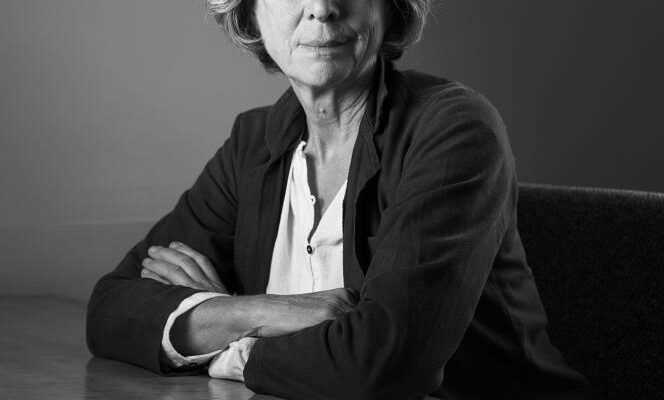During my childhood, we lived almost everywhere – in Kenya, in Washington DC, in Moscow – because my father, a political journalist, was regularly sent abroad. This is how I was born in Lebanon. I lived there until I was 4, then 9 to 13. My parents, who were big party animals, forgot to have my birth certificate issued. I loved this country, its smells, its climate, our extraordinary garden.
England, on the other hand, was the rain, the gray, the poorly heated house. One of the things that cheered us up was the Lebanese dishes. So we, the children, were asking my mother for tabbouleh all the time. It was fresh, simple, fragrant, sunny. The problem was, it was very difficult to find good vegetables, especially fresh tomatoes, and even more difficult to obtain olive oil.
In the 1960s it was a product not found in England, so we had to buy our oil in small vials at the drugstore. We were taken for crazy, but it was worth it.
Being in the winery
One day, at the table, when I was 16 years old, my father, who was very fond of eating and drinking, served one of the first Californian wines of the time at the table. I taste and tell him defiantly: “Your wine is not good. “ One of the guests, a French diplomat, tells me: “Miss, you know, wine can be learned! “ So after the bac, at 18, I took a year to go to the vineyards in the Bordeaux region.
“As soon as I set foot in the earth, in the rain, I knew that was what I wanted to do. “
To tell the truth, I especially wanted to be in the winery, to understand how grape juice becomes wine. The environment was still very misogynist, not easy to find my place there… Finally, I met Lucien Legrand, founder of Caves Legrand, during a stopover in Paris between London and California. He was a great guy, who was fifty years ahead of everyone else, passionate about natural wines and the Loire.
I opened his cellar in the Vivienne gallery, he taught me everything. Then I got married, had kids, started writing wine guides and working for the Slow Food movement. For twenty years, I ran a column in The Revue du vin de France…
When my daughter was 16, I said to myself that I had to do something with my life, and I went to harvest at Domaine Huet, in Vouvray. It was my first time. As soon as I set foot in the earth, in the rain, I knew that was what I wanted to do. I was obsessed with Chinon, a red wine that was at the same time light, fleshy and voluptuous.
For three years, I searched for a great terroir in the area, until I found the Clos des Capucins, a manor with a small magnificent vineyard and a wonderful terroir. Today, I spend most of my time there. I became a biodynamic winegrower. At harvest time, I always prepare, for my teams, Lebanese bread in a wood-fired oven in the cellar, rillettes and rillons, and a large tabbouleh as in Lebanon, for freshness and memory.
